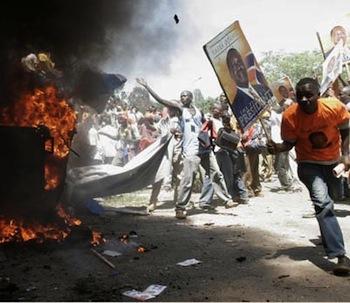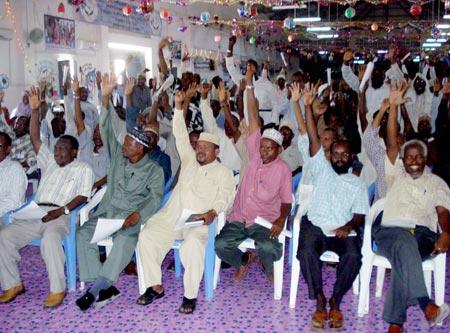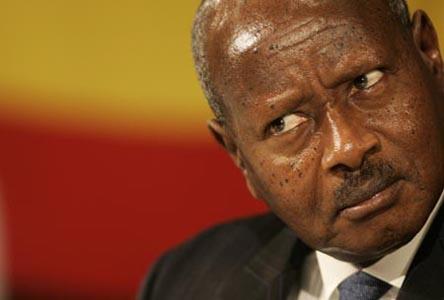
Supporting Peace – Not War – in Kenya
Should the United States choose to support long-term peace and stability over its short-term counterterrorism interests, there is much that it can do to help ensure a peaceful Kenyan election.

Should the United States choose to support long-term peace and stability over its short-term counterterrorism interests, there is much that it can do to help ensure a peaceful Kenyan election.

Kenya’s invasion of Somalia, with U.S. support, is as ill-advised as the last time a U.S. ally tried to remake the fractured country by force.
Al-Qaeda is having a near-death experience, so why is the Obama administration opening a new front against terrorism in Africa?

The international community, particularly the United States, is pursuing a dual-track policy that encourages the very warlordism that is pulling Somalia apart at the seams.

Somalia is now suffering from a drought on top of its civil war. Including women in decision-making roles is part of solving both crises.
It is the height of recklessness for the current crop of uncompromising Republicans in Congress to play political games with our nation’s economic soundness.

Ugandan President Yoweri Museveni’s violent crackdown of ongoing protests is creating an uncomfortable situation for the United States, which views Museveni as a key regional ally.

The autonomous section of northeast Somalia wants a better deal: for itself and for the whole country.
In what appears to be another U.S. proxy war.

It’s time to accentuate the positive with Somalia.

As Somalia collapses, it threatens to take Kenya down with it.
National Public Radio’s News & Notes.
Violence continues to engulf Somalia. Here’s what can be done to promote reconciliation.
The Bush administration has chosen yet again force over diplomacy.
The Islamic Courts Union is on the run. But political Islam remains a force to be reckoned with in Somalia.